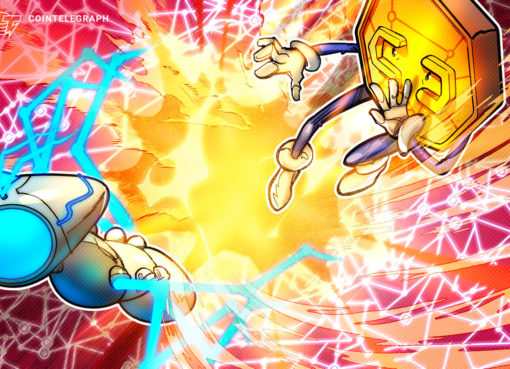Stablecoin pioneer Uphold is claiming to have launched the first tradable retail carbon token.
The Universal Protocol Alliance, a coalition of blockchain companies led by Uphold and including Bittrex Global, Ledger, Certik and Infinigold, announced the Universal Carbon (UPCO2) token Tuesday.
Each blockchain-based UPCO2 token represents a certified measure of carbon dioxide. They can be bought and held as an investment, or burned to offset a company or individual’s carbon footprint, the group said.
A rather overloaded term, “carbon credits” can refer to both government-issued credits traded on regulated markets, and voluntary carbon offsetting where credits can help remove emissions via projects that plant trees, for instance. Blockchain technology has been touted as a way to prevent the double counting (or double spending) of carbon credits in all areas and markets.
Read more: Carbon Credits Have a Double-Spend Problem. This Microsoft-Backed Project Is Trying to Fix It
Uphold is starting out by tokenizing voluntary carbon credits, in particular REDD credits which are high quality, easy to understand and make up about 58% of the voluntary carbon market, explained JP Thieriot, co-founder of the UP Alliance and CEO of Uphold. Each UPCO2 Token represents one year-ton of CO2 pollution averted by a certified REDD+ project preventing rainforest loss or degradation, he said.
Based on the Ethereum ERC-20 standard, the tokens are backed by a Voluntary Carbon Unit (VCU), a digital certificate issued by international standards agency Verra, which allows certified projects to turn their greenhouse gas (GHG) reductions into tradable carbon credits.
Today, the retail market for voluntary carbon credits – via sites like TerraPass or Cool Effect – allow access, but not holding or trading, which is the important distinction, said Thieriot.
“We are the first people in the world that are making these credits accessible to retail, and holdable,” he told CryptoX in an interview. “So there’s lots of retail sites that allow you to offset the trip you just took to New Zealand or give somebody a clever Christmas present. But they don’t allow the buying and holding for investment or speculative purposes.”
When he began looking at voluntary credits as fungible assets, Thieriot expected the prevailing “NGO mindset” was probably going to be sceptical of a project to harness a younger generation’s speculative interest.
“Actually every single conversation we had, people totally got it. They all understood that if we can pull that trick off, it could change the world,” Thieriot said.
Voluntary carbon offsetting is also of interest to companies like Amazon and Microsoft and Nike, said Thieriot, who are no longer interested in waiting around for governments to take the lead, and have set out to neutralize their current carbon footprint, or even their entire historical footprint, by their own initiative.
Meanwhile, demand for carbon credits is set to outstrip supply by a factor of four to one in 2020, according to the World Bank. And a change in the political climate in the U.S. looks likely, with President-elect Joe Biden announcing a climate administration.
The UPCO2 tokens are to undergo a “curing process,” which amounts to a primary issuance, said Thieriot, whereby they will be made available from today on the Uphold platform.
“Initially we are going to offer it on Uphold for about four to six weeks and then Bittrex Global will light it up,” Thieriot said. “And then we’d like every exchange in the world to pick them up.”




